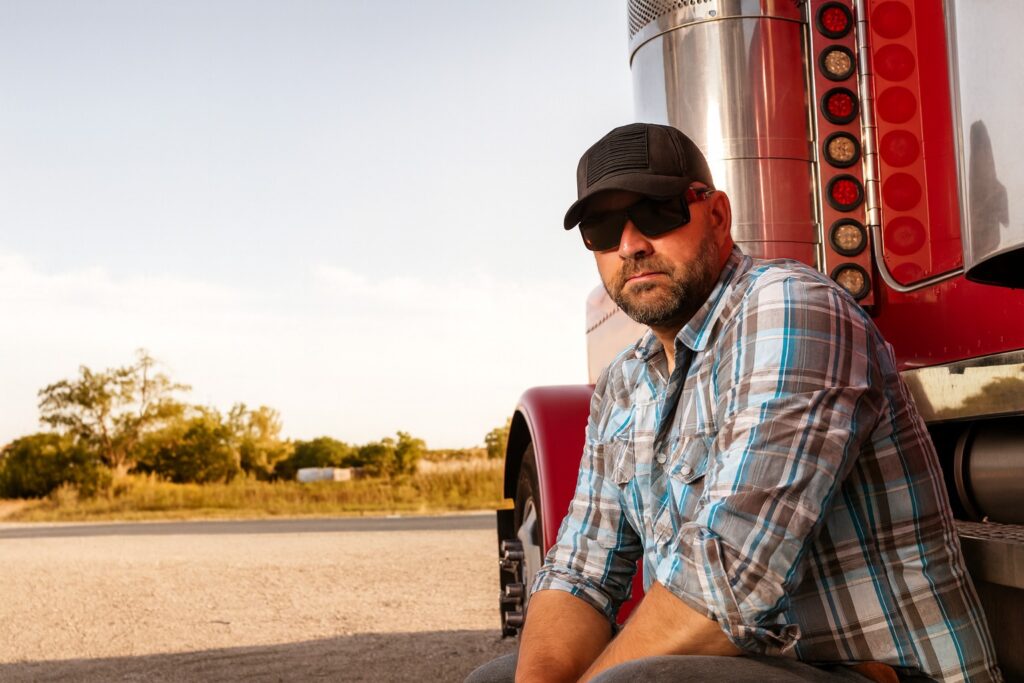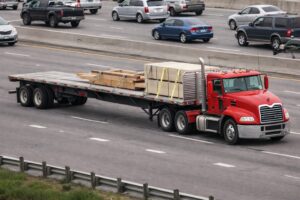In the trucking industry, owner operators are both professional truck drivers and independent business owners. They own or lease their trucks, choose their routes, and manage their own expenses. This independence attracts many drivers who want more control over their work.
However, with freedom comes responsibility. This job description for owner operator covers what the role includes, required qualifications, skills, and daily duties to help you understand whether this career is the right fit.
What Does an Owner Operator Do?
An owner operator truck driver transports goods using commercial vehicles they own or lease. Unlike company drivers who work for a single employer, owner operators operate their own trucking business. They contract directly with shippers, load boards, or trucking companies to deliver freight safely and efficiently.
Common types of freight include:
- General dry goods
- Refrigerated items (reefer loads)
- Flatbed materials such as steel and lumber
- Specialized or hazardous materials that require special endorsements
Each load requires different equipment, experience, and attention to safety regulations.
Core Responsibilities of an Owner Operator
Every job description for owner operator roles includes both driving and business management. Below are the primary responsibilities you can expect in this career.
1. Transport Freight Safely and Efficiently
Owner operators drive long distances to move freight between manufacturers, warehouses, and retail destinations. They must plan their routes, meet delivery deadlines, and follow all Department of Transportation (DOT) safety rules.
2. Maintain Compliance and Safety
The Federal Motor Carrier Safety Administration (FMCSA) regulates commercial driving in the United States. Owner operators must comply with all FMCSA rules, including Hours of Service (HOS), electronic logging, and vehicle inspections. They must also keep up with required drug and alcohol testing programs.
3. Manage Business Operations
Because they are business owners, owner operators handle finances, taxes, maintenance, and insurance. They track expenses for fuel, repairs, and tolls, and they calculate profit margins for every haul. Managing business records is essential for long-term success.
4. Inspect and Maintain Equipment
An owner operator’s truck is their most valuable asset. Daily inspections help identify issues early. Drivers need to do regular maintenance.
This includes oil changes, checking tires, and adjusting brakes. These steps help keep their trucks in good shape.
5. Find and Negotiate Loads
Owner operators often use load boards or work with brokers to find freight. Negotiating rates, delivery terms, and routes requires skill and experience. Successful owner operators build relationships with reliable shippers to secure steady work.
6. Communicate with Clients and Dispatchers
Professional communication is key. Owner operators coordinate with clients, dispatchers, and warehouse staff to confirm pickup and delivery times. Clear communication ensures efficiency and helps maintain positive working relationships.
7. Follow State and Federal Regulations
Owner operators need to know state and federal transportation laws. This includes getting a commercial driver’s license (CDL) and keeping safety standards. These regulations cover truck weight limits, fuel taxes, and hazardous materials handling.
Qualifications and Licensing
Every owner operator must have the proper training and credentials to operate commercial vehicles legally.
Education
A high school diploma or GED is generally required. While formal education beyond that is optional, business or accounting knowledge is helpful for managing finances.
Training and Experience
Most drivers gain experience working as company truck drivers before starting their own business. This experience helps them understand routes, dispatching, and freight handling. Many attend a training program to earn their CDL and learn industry safety standards.
Commercial Driver’s License (CDL)
A driver’s license CDL is mandatory for anyone operating heavy commercial vehicles. For owner operators, a commercial driver license CDL with proper endorsements may be needed depending on the type of freight hauled. For example, hauling fuel or chemicals requires a HazMat endorsement.
Other Requirements
- Clean driving record
- Valid medical examiner’s certificate
- Knowledge of Federal Motor Carrier Safety regulations
- Strong time management and organizational skills
Skills Needed for Success
A great owner operator must balance driving expertise with business sense. The most successful drivers combine both.
- Driving Skills: Safe driving habits and strong knowledge of road regulations.
- Mechanical Knowledge: Ability to perform basic maintenance and identify mechanical issues.
- Business Management: Understanding expenses, taxes, and cash flow.
- Negotiation: Ability to secure profitable loads and fair rates.
- Customer Service: Positive communication with shippers and brokers.
- Self-Discipline: Ability to manage time, meet deadlines, and stay motivated without supervision.
These skills separate high-earning owner operators from those who struggle to stay profitable.
Work Environment and Schedule
Owner operators often drive across multiple states and spend long hours on the road. They decide when to work, what loads to haul, and how far to travel. This flexibility is appealing, but it also means taking on risk. When freight demand drops, income can fluctuate.
Schedules vary based on contracts. Some drivers haul regional freight and return home nightly, while others travel cross-country for weeks. Weather, road conditions, and traffic can also affect work hours.
Typical Pay and Earnings
The earning potential for owner operators depends on experience, location, and type of freight. On average, gross revenue ranges between $180,000 and $250,000 per year. However, after expenses like fuel, maintenance, and insurance, net income usually falls between $50,000 and $90,000.
Specialized loads such as hazardous materials or oversized freight pay higher rates but require more training and compliance.
Career Outlook in the Trucking Industry
The trucking industry continues to grow due to demand for goods across the United States. As supply chains expand, qualified owner operator truck drivers are in high demand. The Bureau of Labor Statistics projects steady job growth for truck drivers, with strong opportunities for those who own their equipment.
Technology also supports modern trucking. Load boards and mobile apps make it easier to find freight, plan routes, and track expenses. The role of the owner operator is evolving with these tools, making it more efficient than ever to run an independent trucking business.
Summary
An owner operator job description goes far beyond driving. It includes transporting freight, maintaining safety standards, managing business finances, and staying compliant with Department of Transportation and FMCSA regulations.
Becoming an owner operator gives drivers independence and control over their careers. However, success requires discipline, financial awareness, and dedication to safety. If you love truck driving and have a strong work ethic, consider being an owner-operator. This path lets you manage the road and the business side of trucking.







